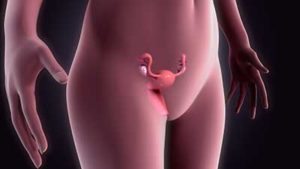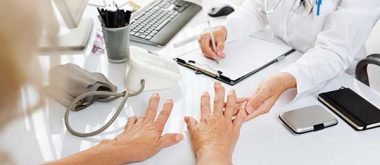If you were wondering what caused your menopause to begin when it did, you may be surprised to find out that the timing of your first period may be associated with menopausal onset. In fact, women who saw their first menstruation before their 12th birthday have a higher risk of premature menopausal symptoms.
On average, most women in the U.S. experience menopausal symptoms at, or around, age 51. However, the range varies from age 35-59, and any woman can experience her menopausal stage within this range. When it starts before age 40, it is known as premature menopause, and that which starts between 40 and 44 years is termed as an early menopausal stage.
First Period Versus the First Onset of Menopausal Signs
The first menstruation, also known as menarche, is a critical stage that marks the beginning a woman’s reproductive age and the future for her childbearing years. Menarche comes at different ages depending on one’s genetic make-up, their nutritional habits, geographical region, and many other factors. The average age of menarche in the U.S. is estimated at 12.5 years.
Unlike menarche, menopausal onset is the age when a woman’s menstrual periods stop, and she can no longer have children. Most women experience menopausal signs from age 45 to age 55. However, some women can experience their menopausal signs before their 40th birthday. This type is called premature menopausal signs. The symptoms may include night sweats, vaginal dryness, mood swings and low libido.
Both early and premature menopausal signs can be distressing to a woman. The conditions can cut a woman’s dream of achieving a desired number of children since they cannot get pregnant. Affected women may also face increased levels of stress and depression. Early menopausal signs are also a risk factor when it comes to osteoporosis, a condition that increases the risk of bone fractures.
What Causes Early or Premature Menopausal signs?
Early menopausal signs are linked to various causes, and sometimes it happens under unknown circumstances. Some of the common causes include genetic makeup, smoking, body mass index, poor diet, chromosomal defects, and early menstruation. Because early menopausal signs are a potential health risk, it is important for one to get prepared.
How does a Woman’s First Period Relate to Premature Menopausal Symptoms?
The age at which a woman receives her first period has been linked to determine the age they will experience menopausal signs. The University of Queensland carried out a survey of 55,000 women from UK, Japan, Scandinavia, and Australia in an attempt to establish if menarche is linked to the menopausal stage.

According to Gita Mishra, one of the research experts, early menopausal age also leads to infertility. Women who received their menarche before age 12 face difficulty falling pregnant.
The research makes it clear that the period between a woman’s first menstrual cycle and the first menopausal signs are significant determinants of a woman’s reproductive health. This gives health practitioners the chance to make early interventions to address and prepare women for the possibility of ovarian failure.
Planning for Early Menopause
In response to the research, William Ledger of University of New South Wales argues that despite the fact that early menarche places a woman at a higher risk of early menopausal symptoms, it’s still possible for one to experience normal menopausal signs.
One may not be able to control the time at which they first menstruate or which they experience menopausal signs if they are linked to your genetic make-up, however, you can control external factors that may cause premature menopausal signs. Factors within a woman’s control include practicing proper nutrition and quitting unhealthy habits such as smoking.
In case you have a higher risk of premature or early menopausal signs, it is advisable to look into family planning early to potentially give birth to the number of children you desire before the age of 35, a time when premature menopausal signs may start.
Regular physical exercise is another way that can help you manage menopausal symptoms such as mood swings and increased body weight. Physical exercise can help to maintain healthy BMI and healthy bones. When menopausal signs set in, estrogen, a hormone that plays a role in bone formation reduces thereby reducing overall bone strength.
You may also need to watch out for signs of diseases such as cardiovascular diseases that are common due to the reduced levels of estrogen.
While there is no telling exactly when menopause will strike, making early preparations to welcome your menopausal stage is the best way to encounter the challenges related to the hormonal changes. In addition, once menopause begins, adjusting to hormonal changes and looking into balancing these changes with dietary supplementation to support menopausal symptoms can help maintain a healthy hormone balance.





